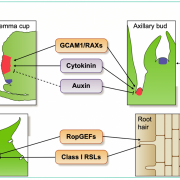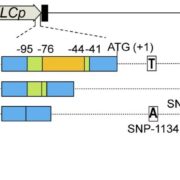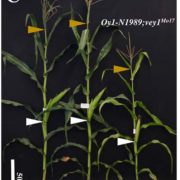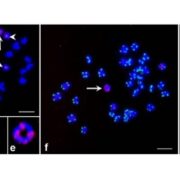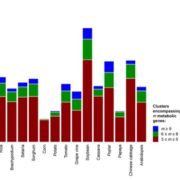KonMari for Maize – keeping genomes clutter-free during selfing ($) (Nature Plants)
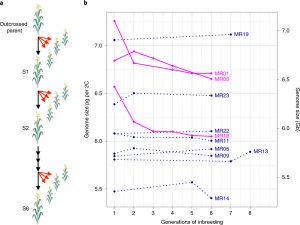 Just like years of hoarding can end up cluttering our homes, years of self-fertilization or selfing can also accumulate harmful mutations in plant genomes. By removing such harmful alleles from the genome (i.e., purging) plants can reduce the mutational load and prevent fitness loss due to selfing. Roessler et al. took a close look at the immediate genomic consequences of purging by examining eleven maize lines that were selfed for six generations. They found that three of these selfed lines lost ~6% of their genomes through purging. Genome size loss was mainly due to a reduction in transposable element content (and to a lesser extent chromosomal knob-associated repeats) and not due to reduced ribosomal DNA or gene-content. Surprisingly, these lines retained heterozygosity at a higher rate than expected, and genomic regions with high heterozygosity were enriched in harmful alleles. Finally, high-recombining regions were more prone to rapid purging of harmful alleles than low-recombining regions. (Summary by Saima Shahid) Nature Plants 10.1038/s41477-019-0508-7.
Just like years of hoarding can end up cluttering our homes, years of self-fertilization or selfing can also accumulate harmful mutations in plant genomes. By removing such harmful alleles from the genome (i.e., purging) plants can reduce the mutational load and prevent fitness loss due to selfing. Roessler et al. took a close look at the immediate genomic consequences of purging by examining eleven maize lines that were selfed for six generations. They found that three of these selfed lines lost ~6% of their genomes through purging. Genome size loss was mainly due to a reduction in transposable element content (and to a lesser extent chromosomal knob-associated repeats) and not due to reduced ribosomal DNA or gene-content. Surprisingly, these lines retained heterozygosity at a higher rate than expected, and genomic regions with high heterozygosity were enriched in harmful alleles. Finally, high-recombining regions were more prone to rapid purging of harmful alleles than low-recombining regions. (Summary by Saima Shahid) Nature Plants 10.1038/s41477-019-0508-7.


